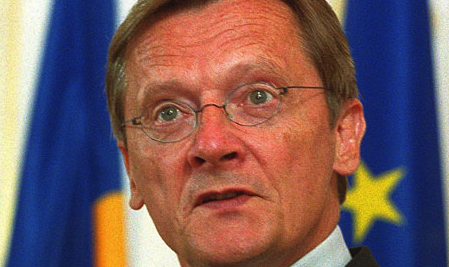Schüssel’s Reactionary Carrot

So is this the price we have to pay to keep the European Constitution alive: to slow down the pace of enlargement, as suggested by Austrian Prime Minister Wolfgang Schüssel in today’s FAZ, reported by EUObserver? I suppose that such comments from a centre-right leader of a country in which every party opposes Turkey’s EU membership is to be expected. But the issue is very real: should the French and Dutch no votes derail enlargment?
For anyone who has ever travelled in the formerly Communist states of central and eastern Europe, it is very clear that EU enlargement is one of the most vital decisions ever taken by the bloc. Not only has enlargement helped to sustain democracy, but it has also boosted economic growth and offer citizens some of the concrete advantages that all of us in the old EU-15 have just taken for granted. The case for bringing the western Balkan countries into the EU is as strong as ever, and closing the door to Turkey now would be geopolitically a disaster. Also see my previous blog entry about Mark Leonard’s book “Why Europe Will Run the 21st Century”.
Further, polls after the French and Dutch votes put concerns about enlargement as only one of their major concerns – see this article from EUObserver explaining it. It just that having a rant about enlargement is simple and straightforward for the EU’s leaders. Sarkozy has also jumped on this bandwaggon before. It’s for sure a lot easier than seriously getting to grips with economic problems in an era of globalisation – the real challenge if confidence in the EU and in politics is to be rebuilt in Europe.
So let’s not fool ourselves that enlargement must slow for the Constitution to enter into force. The Constitution was after all intended to make the institutions more streamlined to enable enlargement, so there would be some bitter irony if it was to stop enlargement. Instead Europe’s politicians should seriously get to grips with the major challenges our countries face.